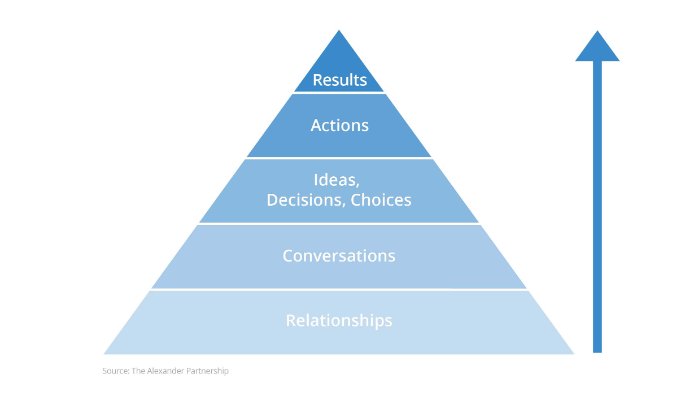John Ainley: Team success depends on trust and strong relationships… in business & in politics

Team success depends on trust and strong relationships… in business & in politics
If there is one thing that the meltdown of the UK’s political parties in the aftermath of the Brexit referendum has revealed, it is the apparent absence of trust and strong relationships at the heart of the political establishment. If a political party is to be effective, its top ‘management’ must trust each other and have the strong, robust relationships that can withstand honest, transparent conversations and be open to challenge – without suffering the fallout we’ve seen over recent times.
It’s no different for any business where trust and strong relationships within the executive team are just as critical. Take away those qualities and an executive team will be hamstrung by a collective fear of conflict; a lack of commitment; avoidance of accountability; and, ultimately, a lack of focus on results as status and ego become more important than team outcomes. Think of the team dynamics like a pyramid. Relationships sit at the base of the pyramid and support conversations, ideas, decisions and choices which lead to actions and ultimately results. If the relationships aren’t secure then the rest of the pyramid will crumble.
You need to work at building strong relationships
Trust and strong relationships however are not something that can simply appear by osmosis; they need to be actively developed. Executive teams come together with individuals growing up through the ranks in their organisation or having been recruited externally and, while some members of the team will know each other well, others will be less familiar. The point being that, like any relationship, the team will need to work at developing trust and those strong relationships. A big problem for many businesses is a failure to put in that work from the outset.
So, how should teams go about developing their relationships with each other and building up the levels of trust they need? Having conversations that explore personal attitudes and beliefs is an important part of this process and regular off-site team meetings provide great opportunities to depart from the regular business agenda.
Admit to your vulnerabilities
Who is the one person you would like to thank for you becoming the person you are today? Non-business related questions like this open the door to a better quality of conversation and help explore individual strengths and weaknesses. Too many executives deny they have weaknesses, but admitting to them – being prepared to be vulnerable – is part of developing the trust and honesty that ultimately will help relationships.
Get it right and the executive team will exhibit more of the following key behaviours:
- Trust – trust me to do my job and you to do the same
- Honesty and transparency – no hidden agendas and no suppression of bad news
- Open to challenge – challenge the idea and not the person
- Inclusivity – everyone can contribute
- Open to new ideas – create time, stop and listen
- Decisive and cohesive – make well supported decisions and be willing to compromise
- Admitting mistakes – all great entrepreneurs make many before achieving a breakthrough; be open to discuss and learn from failure.
Relieve the burden of needing to ‘look good’
Most research agrees that if you have deeper and challenging conversations, without the burden of feeling the need to ‘look good’, then you will create solutions that you previously wouldn’t have done, the quality of debate will be higher and the end results will be better. Those conversations will only take place if the team is built on a firm foundation of trust and strong relationships.
Next time you are wondering about your business performance ask yourself… is there really 100% trust in the room? Is the behaviour in the executive committee meeting reflecting the true openness and challenge required to make this team really high performing? Are we discussing the undiscussables? Only then will you know that you are on track for superior performance and not entering into the world of Machiavellian madness that seems to be infecting our politics today.